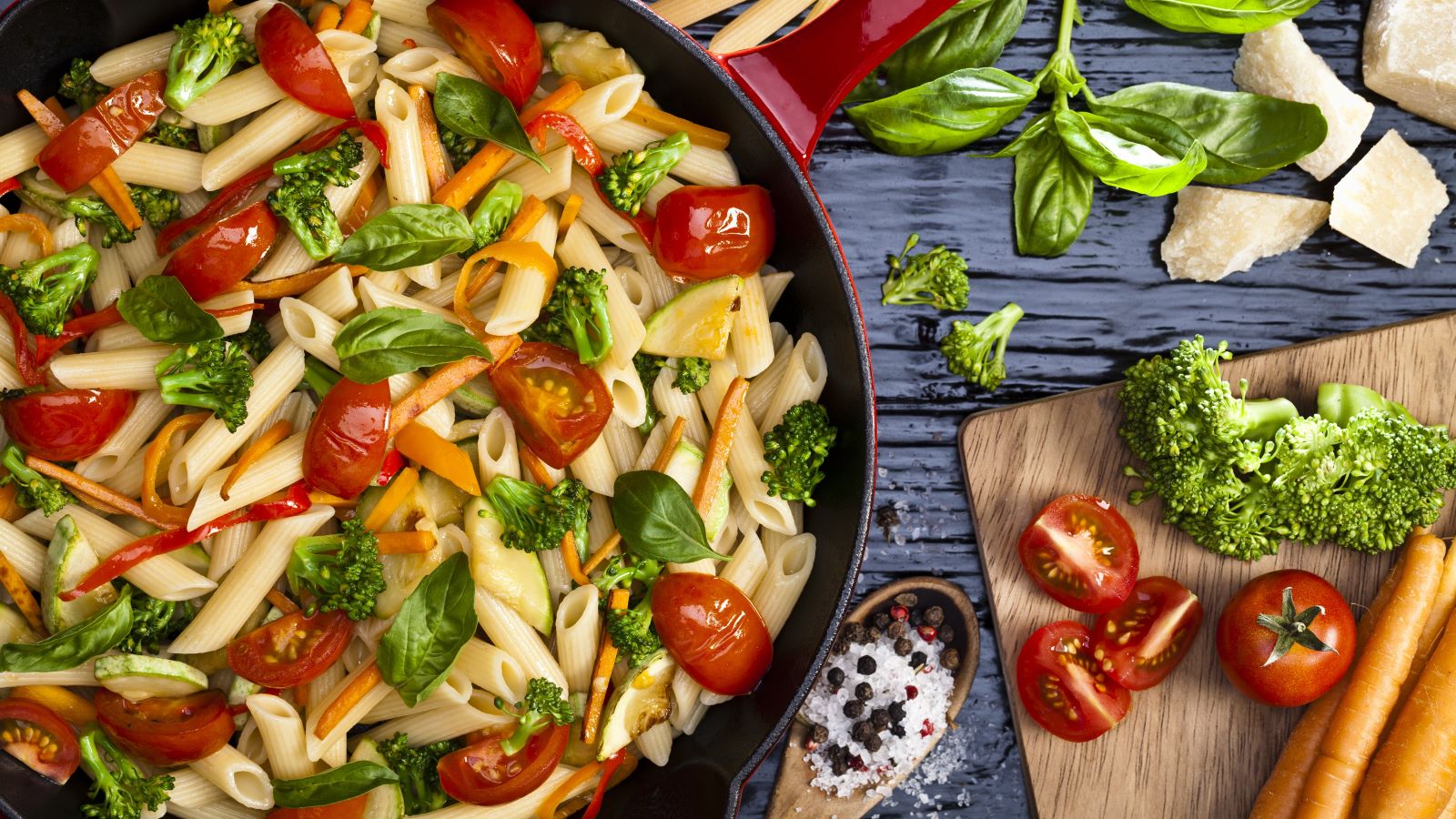<< Back
Is Pasta Healthy for You?

March 01, 2024
Do you feel guilty eating pasta — or worse — avoid it all together?
It may be time to to rethink your anti-pasta sentiment. There’s proof that pasta isn’t just convenient and delicious, but also might have some health benefits.
Here’s what Melissa Keeney, RDN, clinical nutrition manager at St. Vincent’s Medical Center, has to say about it.
Fad diets have made pasta into the enemy.
So why does pasta get a bad rap?
“Most fad diets tend to demonize carbohydrates,” she says. “But carbohydrates are an important part of our diet. In fact, our brains and nervous system need about 130g of carbohydrates daily to work efficiently. That’s the equivalent of 3 cups of pasta daily!”
> Related: How Much Fat and Carbs Should I Actually Be Eating?
But there’s no denying that pasta has its value.
If you’re suddenly craving pasta, you’re not alone.
Its go-to reputation is well deserved.
Besides being satisfying and tasting great, it’s also inexpensive and easy to make. Plus it offers versatility and a long shelf life.
Pick your pasta wisely.
More and more pasta variants have emerged over the years, and the health benefits you reap can vary, says Keeney.
“There are many different types of pasta out there that you may never have tried. Some are lower in carbs and much higher in fiber and in protein,” she says.

But what if I like plain old pasta?
That’s ok!
One idea to make regular white pasta healthier is to incorporate other healthy elements into the meal, says Keeney
“Just focus on what to add to your meal to make it wholesome and nutritious. You should aim to include a carbohydrate, a fat, protein and some fiber,” she says.
- Penne with broccoli rabe, grilled chicken tossed with garlic, lemon, parmesan cheese and olive oil.
- Spaghetti with ground turkey and vegetable Bolognese with a side salad.
- Shrimp scampi with fettucine and a side of roasted broccoli.
- Tuna pasta salad made with Greek yogurt instead of mayo. Sundried tomatoes, artichoke hearts, fresh tomatoes, onions and bell pepper are delicious add-ins.
Watch out for jarred sauces.
Even if the pasta is healthy, the sauce can sabotage you.
Jarred marinara sauces are usually high in sodium, while creamy, dairy based sauces are higher in fat, says Keeney.
The best solution? Make your own instead!
“Homemade sauce is surprisingly easy to make, and you can make a big pot and freeze some for when you are in a pinch. One of my go-to pasta dressings is ‘aglio e olio’ – minced garlic and olive oil with some crushed red pepper. It’s that easy!” says Keeney.
And be sure to keep pasta portions in check.
Even the healthiest, home-cooked pasta dish should be portioned appropriately.
“How much pasta to eat depends on several factors,” says Keeney. “Those can include how active you are, your past medical history, what else and when you have eaten over the course of the day and what else you are eating with that meal. ”
“If you really want to optimize your diet, consider meeting with a registered dietitian for an individualized food plan to help you reach your health goals.”